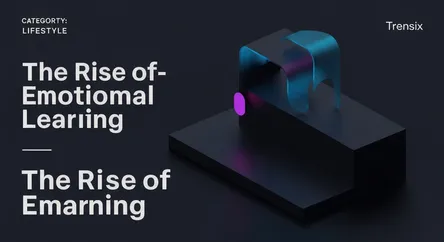Lifestyle
The Rise of Social-Emotional Learning

Discover Social-Emotional Learning (SEL), the educational approach teaching self-awareness, empathy, and relationship skills for success in school and life.
What is it?
Social-Emotional Learning (SEL) is an educational framework that teaches individuals, primarily children and adolescents, the skills to manage emotions, set positive goals, feel and show empathy for others, establish and maintain positive relationships, and make responsible decisions. It focuses on five core competencies: self-awareness, self-management, social awareness, relationship skills, and responsible decision-making. Rather than being a single program, SEL is an approach integrated into a school's culture, curriculum, and policies to support students' development beyond traditional academics.
Why is it trending?
SEL is gaining momentum as educators and parents recognize that academic success is intrinsically linked to emotional well-being. There's a growing awareness of the importance of mental health and the need for skills like resilience and collaboration in the modern workforce. The COVID-19 pandemic further highlighted the need for students to develop coping mechanisms and interpersonal skills. As a result, schools are increasingly adopting SEL to address the whole child, preparing them not just for tests, but for life's challenges and opportunities.
How does it affect people?
SEL profoundly impacts individuals by equipping them with essential life skills. For students, it can lead to improved academic performance, reduced emotional distress, and fewer behavioral problems. They learn to navigate social situations, resolve conflicts constructively, and understand their own feelings. This foundation fosters better mental health, greater self-confidence, and stronger relationships with peers and adults. In the long term, these skills contribute to success in higher education, careers, and personal life, creating more empathetic and capable citizens.